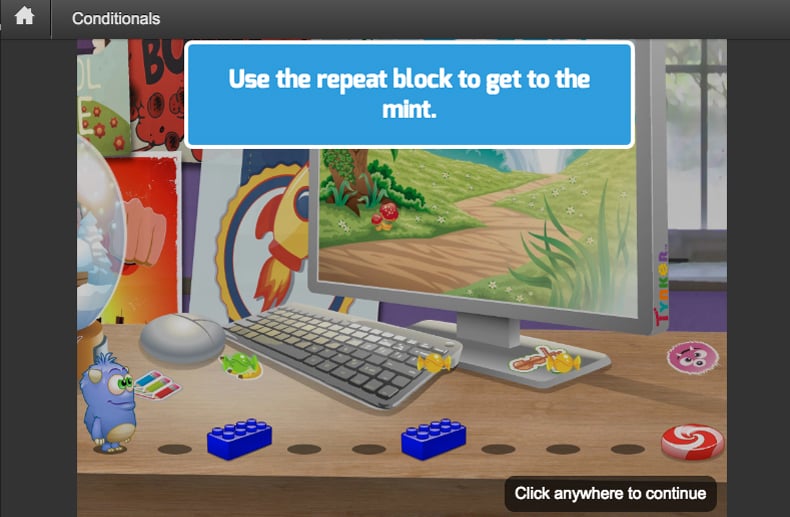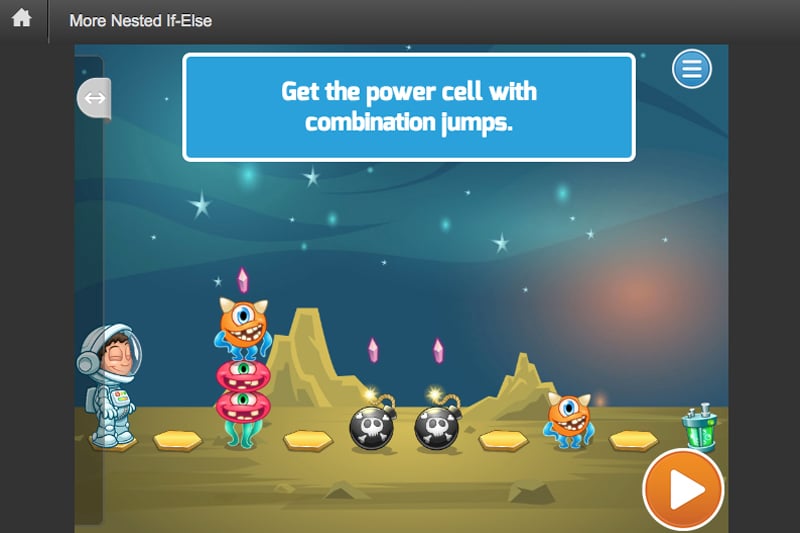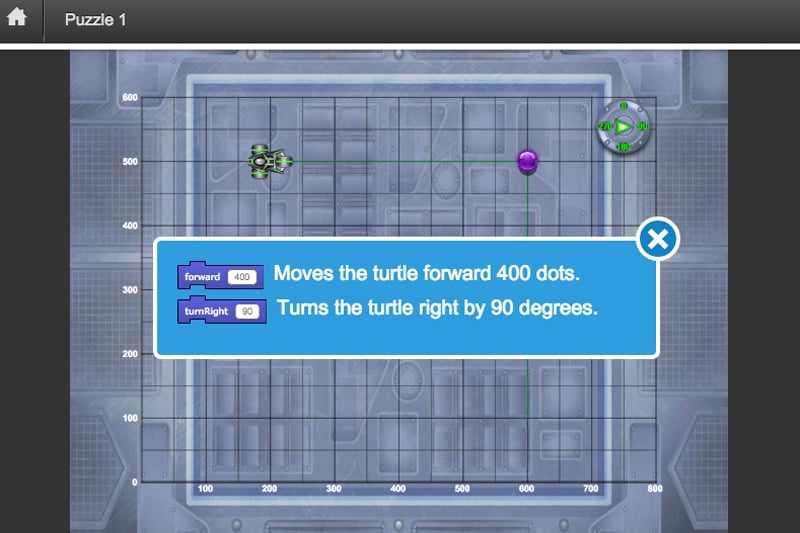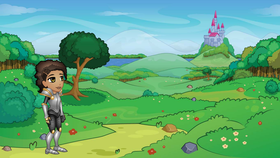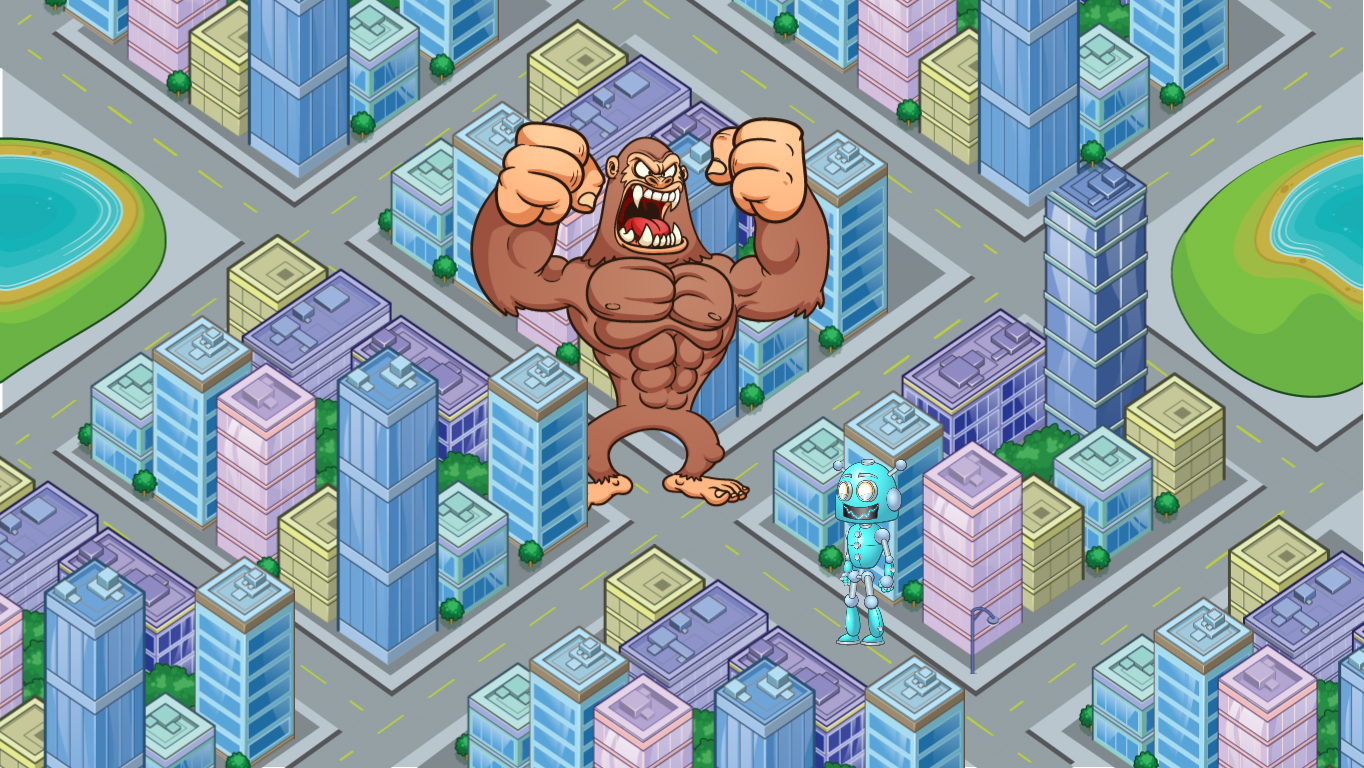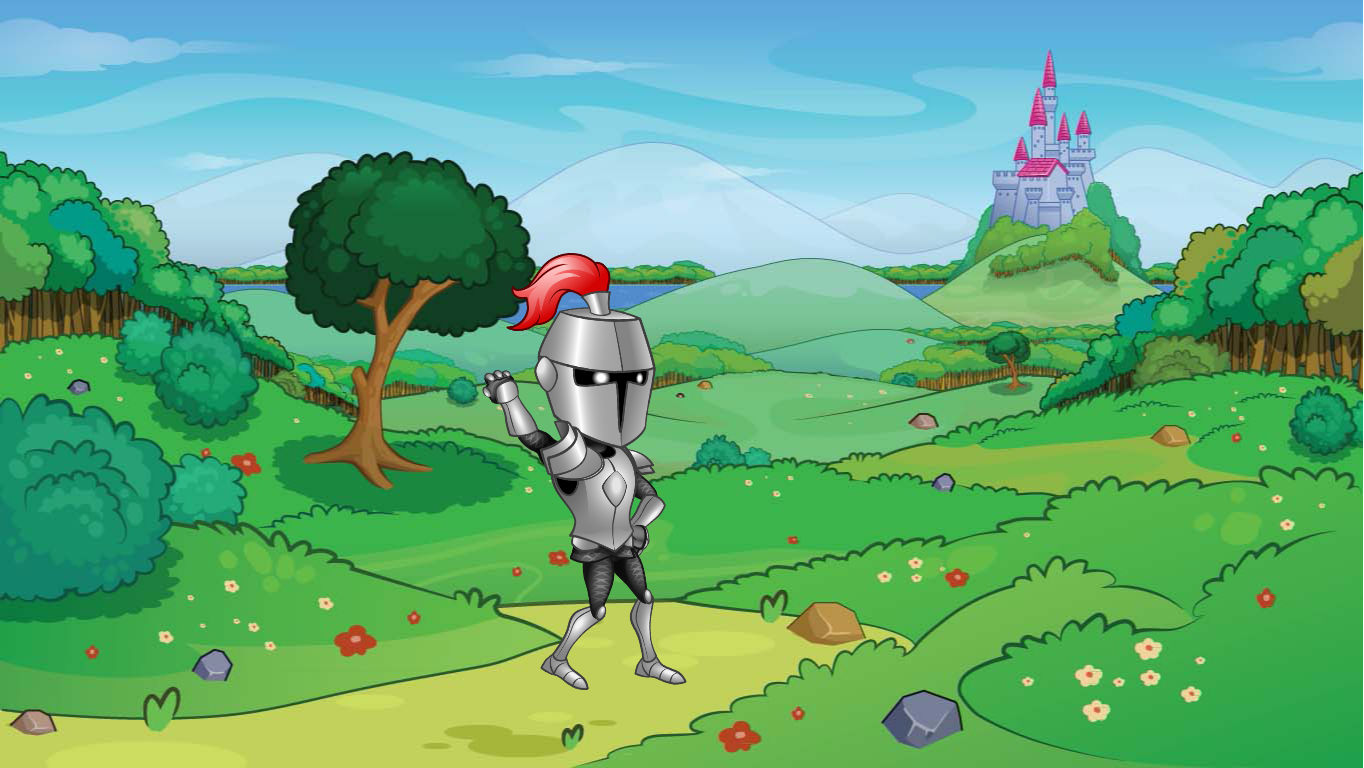Answer Key
Module 1: Staircase Going Down

Module 2: Staircase Going Up

Module 3: House

Module 4: Envelope
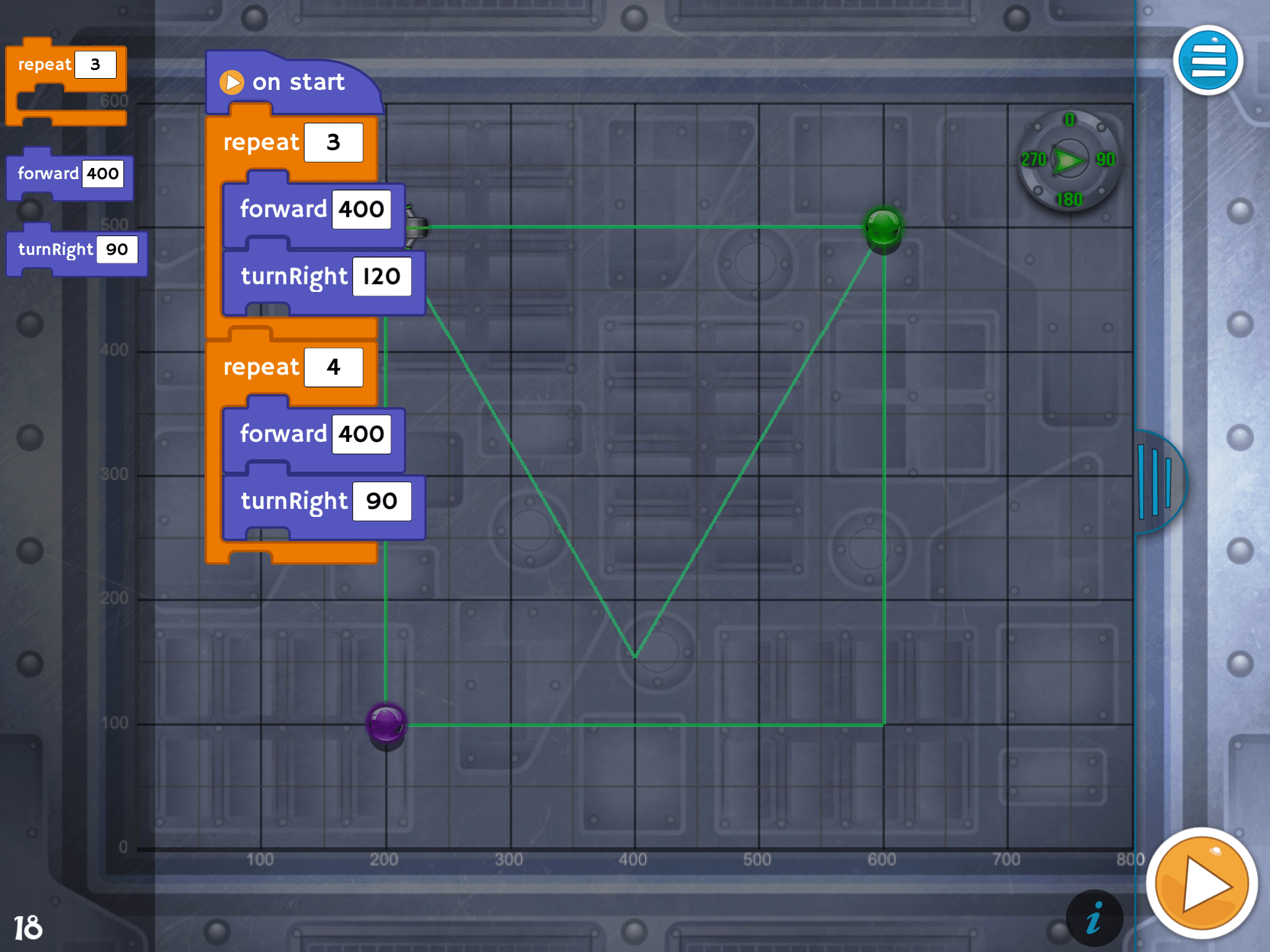
Module 5: Triangle and Square

Module 6: Eyeglasses

U.S. Standards
- CCSS-ELA: RI.1.1, RI.1.6, RI.1.10, RF.1.4, RF.1.4.A, RF.1.1, SL.1.1, SL.1.2, SL.1.3, RI.2.1, RF.2.4, RF.2.4.A, RI.2.6, SL.2.1, SL.2.2, SL.2.3
- CCSS-Math: MP.1, 1.OA.B.3, 1.GA.1, 1.GA.2, 2.OA.B.2, 2.NBT.A.1.A, 2.GA.1, 2.GA.2
- CSTA: 1A-AP-08, 1A-AP-09, 1A-AP-10, 1A-AP-11, 1A-AP-14
- CS CA: K-2.AP.10, K-2.AP.12, K-2.AP.13, K-2.AP.14, K-2.AP.16
- ISTE: 1.c, 1.d, 4.d, 5.c, 5.d, 7.c
U.K. Standards
Key stage 1
Pupils should be taught to:- understand what algorithms are, how they are implemented as programs on digital devices, and that programs execute by following precise and unambiguous instructions
- create and debug simple programs
- use logical reasoning to predict the behaviour of simple programs
- use technology purposefully to create, organise, store, manipulate and retrieve digital content
- use technology safely and respectfully, keeping personal information private; identify where to go for help and support when they have concerns about content or contact on the internet or other online technologies
Key stage 2
Pupils should be taught to:- design, write and debug programs that accomplish specific goals, including controlling or simulating physical systems; solve problems by decomposing them into smaller parts
- use logical reasoning to explain how some simple algorithms work and to detect and correct errors in algorithms and programs
- understand computer networks, including the internet; how they can provide multiple services, such as the World Wide Web, and the opportunities they offer for communication and collaboration
- use technology safely, respectfully and responsibly; recognise acceptable/unacceptable behaviour; identify a range of ways to report concerns about content and contact
Description
Solve more challenging puzzles and build simple projects. This lesson plan contains more puzzles and also includes several lessons where students use Tynker Workshop to create their first working programs. There are about 80 puzzles from fun adventures such as Codey's Quest, Lost in Space, Lazer Racer and Dragon Journey. Students that complete this lesson plan will be able to solve problems, build interactive scenes, use keyboard and mouse actions, play sounds and music, use speech bubbles, and move objects on the screen.
Topics
- Sequencing
- Repetition
- Conditional logic
- Keyboard and mouse events
- Playing sounds
- Simple motion
- Animation
What Students Learn
- Sequencing tasks
- Recognizing patterns
- Using automation
- Using loops for repetition
- Conditional logic
- Debugging programs
- Create simple programs
- Program simple animation and motion
- Problem solving
Technical Requirements
* Online courses require a modern desktop computer, laptop computer, Chromebook, or Netbook with Internet access and a Chrome (29+), Firefox (30+), Safari (7+), or Edge (20+) browser. No downloads required.
